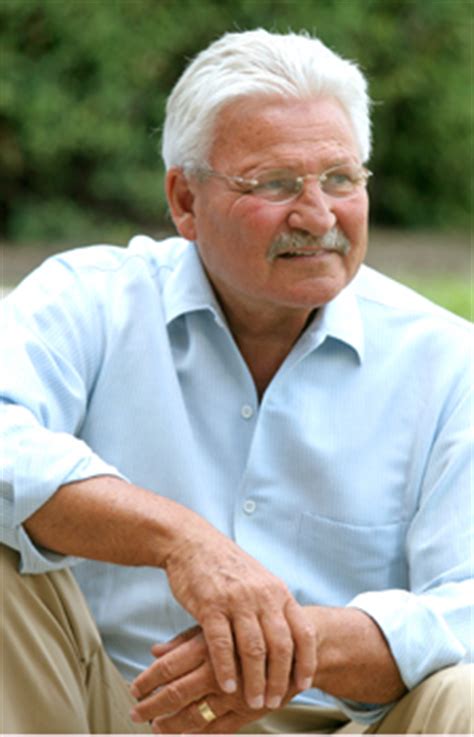A Quote by N. T. Wright
...left to ourselves we lapse into a kind of collusion with entrophy, acquiescing in the general belief that things may be getting worse but that there's nothing much we can do about them. And we are wrong. Our task in the present...is to live as resurrection people in between Easter and the final day, with our Christian life, corporate and individual, in both worship and mission, as a sign of the first and a foretaste of the second.
Related Quotes
Any individual can contribute its own belief. And our society or even our government are made by the people. The people would have the final voice, but it requires each individual to act. If we don't act, then the result is very clear. So for too long Americans take liberty as granted. We think we are in the safe hand, the democracy and the liberty, which is not true. And it can be even getting much worse than today.
The primary metaphor for the Easter season is the church as the resurrected people living a resurrected spirituality. Because of Easter we are in union with Christ and are called to live in our baptismal identity in his resurrection. This essential theme of Easter cannot be communicated in a day. It takes a season.
When exhaling this air, we announced Jesus Christ risen by the same Spirit. No one can live without breathing. It is the same for the Christian: without praise and mission there is not Christian life. And with praise, worship. We rarely speak about worship. What do we do when we pray? We ask things of God, we give thanks. But worshipping and adoring God is part of breathing - praise and worship.
In worship we have our neighbors to right and left, before and behind, yet the Eternal Presence is over all and beneath all. Worship does not consist in achieving a mental state of concentrated isolation from one’s fellows. But in depth of common worship it is as if we found our separate lives were all one life, within whom we live and move and have our being.
Nothing can tell us so much about the general lawlessness of humanity as a perfect acquaintance with our own immoderate behavior. If we would think over our own impulses, we would recognize in our own souls the guiding principle of all vices which we reproach in other people; and if it is not in our very actions, it will be present at least in our impulses. There is no malice that self-love will not offer to our spirits so that we may exploit any occasion, and there are few people virtuous enough not to be tempted.
Let us be satisfied simply with what sustains our present life, not with what pampers it. Let us pray to God for this, as we have been taught, so that we may keep our souls unenslaved and absolutely free from domination by any of the visible things loved for the sake of the body. Let us show that we eat for the sake of living, and not be guilty of living for the sake of eating. The first is a sign of intelligence, the second proof of its absence.
What is life? Thoughts and feelings arise, with or without our will, and we employ words to express them. We are born, and our birth is unremembered and our infancy remembered but in fragments. We live on, and in living we lose the apprehension of life. How vain is it to think that words can penetrate the mystery of our being. Rightly used they may make evident our ignorance of ourselves, and this is much.
It can be set down as a broad, general principle that we cannot indulge in idleness and abundance during both the first and second half of our life. Study, application, industry, enthusiasm while we are young usually enable us to enjoy life when we grow older. But unless we toil and strive and earn all we can in the first half, the second half of our life is liable to bring disappointment, discomfort, distress. The time to put forth effort is when we are most able to do it, namely, in the years of our greatest strength. The law of compensation hasn't ceased to function.
Our contradictions. We are in such a hurry to grow up, and then we long for our lost childhood. We make ourselves ill earning money, and then spend all our money on getting well again. We think so much about the future that we neglect the present, and thus experience neither the present nor the future. We live as if we were never going to die, and die as if we had never lived.
There are no insignificant relationships. Every experience that we have contains purpose and meaning. Each event, each person in our lives embodies an energetic fragment of our own psyche and soul. Our individual spiritual task is to recognize and integrate all of them into our awareness so that the greater pattern of our mission can shine forth in its full dimensions.
... Our individual well-being is intimately connected both with that of all others and with the environment within which we live.... Our every action, our every deed, word, and thought, no matter how slight or inconsequential it may seem, has an implication not only for ourselves, but for all others, too.





































